Established local organizations working to make a better, more just world gathered to share information about their current efforts and how attendees could get involved at a “What We Can Do Fair” on Sunday, March 9. A few dozen residents attended the event, hosted by Congregation Beth Elohim’s social action group, Na’aseh.
Organizations in attendance included:
- Congregation Beth Elohim Na’aseh
- Acton Democratic Town Committee
- Housing for All
- Green Acton
- Acton Boxborough United Way
- Energize Acton
- Indivisible Acton Area
- Jewish Climate Action Network
- Nashoba Area Social Justice Alliance
- 350 MA
- Mothers Out Front – Acton Chapter
- Jewish Family Service of Metrowest
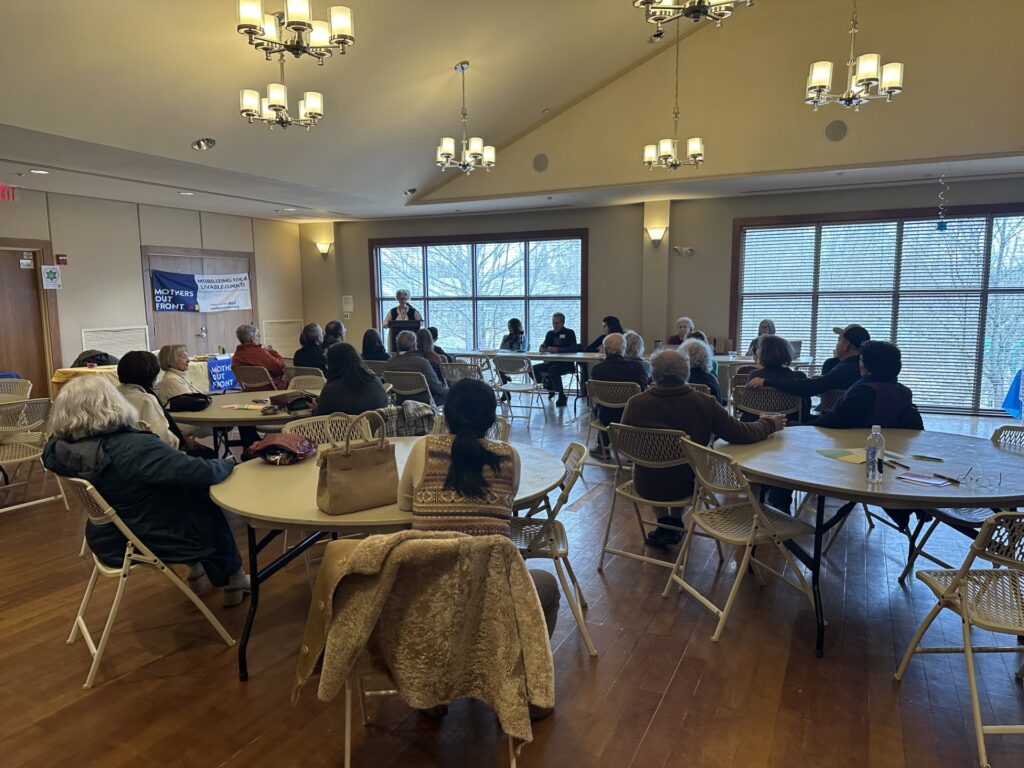
Sarah Coletti, Na’aseh chair offered welcome remarks and introduced the participating organizations. Coletti had invited representatives from a few of the advocacy groups to present in a panel before allowing attendees to visit the tables and chat with group members.
Sahana Purohit, chair of the Acton Democratic Town Committee, noted that the committee aims to build community rooted in kindness and mutual support. Paul Shorb, representing 350 MA, described the organization’s legislative priorities, including the bills “Make Polluters Pay” and “Save Money with Clean Heat”. The former aims to create a “climate superfund,” requiring fossil fuel producers to provide the monies needed for climate change mitigation projects such as building seawalls. He noted that the federal government is considering legislation that would prohibit states from passing this type of legislation, although 350 MA hopes that Beacon Hill will follow in the footsteps of New York and Vermont. Both just passed bills requiring fossil fuel producers to fund mitigation efforts. The latter will tweak incentives to address utility pricing issues. Shorb asserted that “we need everybody to change everything.”
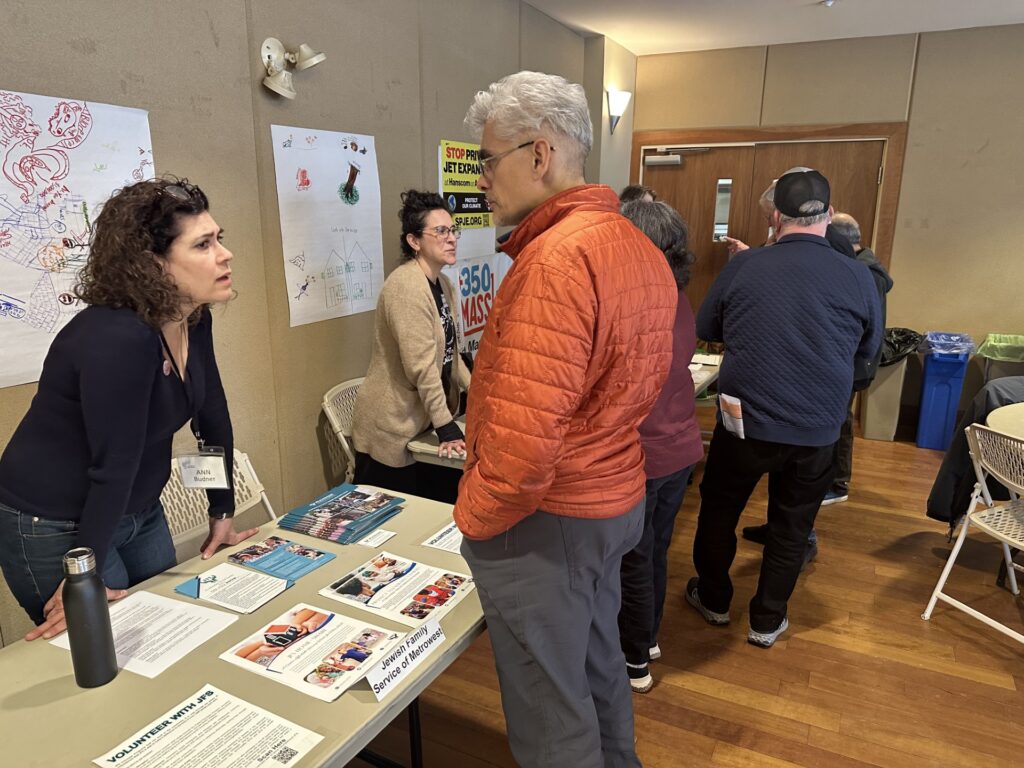
Ann Budner spoke on behalf of Jewish Family Services of Metrowest (JFS), an organization that works to support low income families, welcomes refugees and immigrants, and helps older people stay healthy. The families the organization is working with now are from Ukraine, Afghanistan, Venezuela, and Haiti. Budner explained that the federal government has stopped the inflow of refugees who were already vetted and approved outside of the U.S. for resettlement here after waiting years through the application process and are now stuck in refugee camps. She said the funding for resettlement has also been stopped, so JFS faces challenges in their continued work with families who have newly arrived or are leaving the emergency shelter system.
The group is actively seeking apartments, accessory dwelling units and shared living situations, co-signing rental leases, and offering financial assistance to families until they find work and get their feet under them in their new home. In their work with older adults, JFS offers the Homeshare program, informally known as the “Golden Girls program,” where older adults needing support to stay in their home can be matched with other older adults. This home-sharing initiative addresses two issues of aging – loneliness and the financial burden of maintaining a large house. Budner offered many options for getting involved with JFS: tutoring, coaching, and collecting household donations were a few.
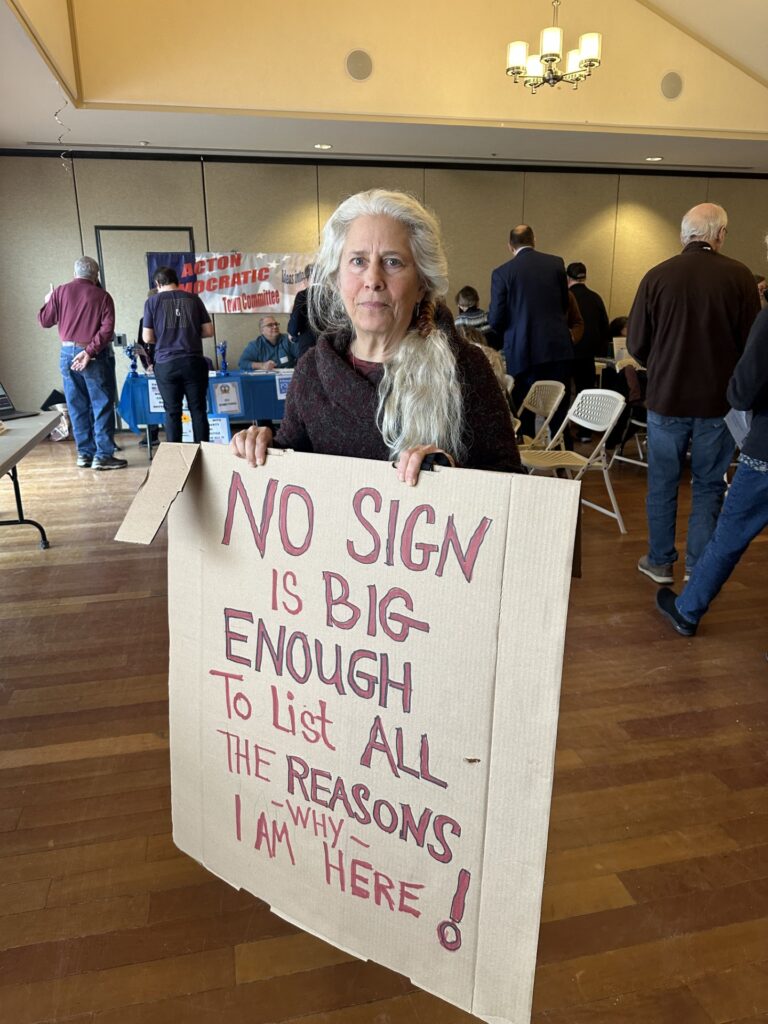
Jude Aronstein, with the Acton Chapter of Mothers Out Front (MOF), shared a story about a conversation she had with someone who didn’t know what she could do to make a difference. Aronstein’s response was, “I think you can write letters. I think you can make phone calls. I think there are organizations around you that are doing those things.” Mothers Out Front is one such group, a national organization dedicated to a livable climate and increasing awareness of the health impacts to us and future generations of gas use in buildings, homes, and vehicles.
Aronstein noted that Acton currently has around 200 gas leaks, and MOF has worked for three years on building awareness through programs and art installations. Aronstein shared that methane is 36x more potent, but diminishes in 20 years, compared to CO2 which diminishes in 300-1000 years. She said, “We have a window of opportunity. If we can stop using methane, we can make a difference. Our goal is to repair the biggest leaks and get something else in there, geothermal neighborhood networks.” Another current campaign is the replacement of diesel-fueled school buses with electric buses. They have partnered with the Acton Boxborough Regional School District’s (ABRHS) student group, Resource Force, on this campaign as well as the student campaign for a Resolution on Climate Action and Carbon Neutrality brought to, and recently approved by, the Acton-Boxborough Regional School Committee.
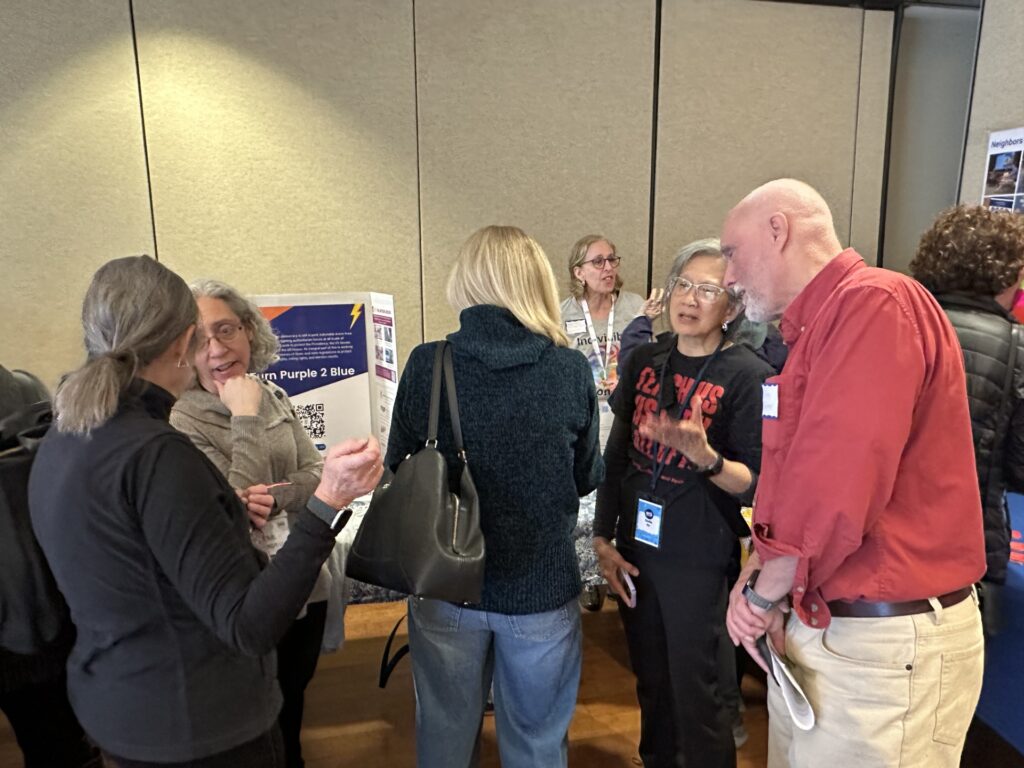
Christine Brown spoke for Indivisible – Acton Area, a group working to protect democracy “because we want nice things. A livable planet. Science. Healthcare. Immigration. All these things depend on democracy.” Brown shared that movement building right now is critically important, suggesting that “we need 10 million activists.” She also spoke about keeping an eye on elected officials. “You have to watch them and hold them accountable. They might call themselves Democrats, but they’re not implementing the policies we need. They’re listening to the lobbyists. They’re listening to the oligarchs. They’re not listening to us.”
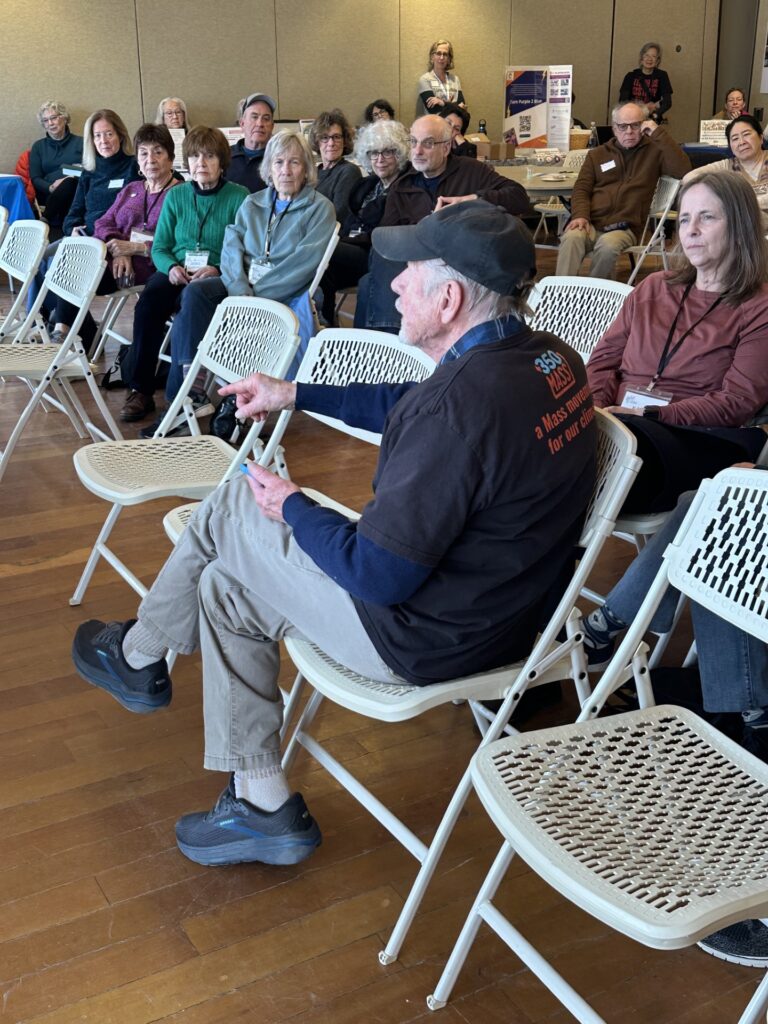
One attendee, Andy Platt, shared a sobering thought following the panelists’ presentations, before the audience dispersed to visit tables around the perimeter of the meeting room. “Some of us here are getting exhausted. It’s a lot of stuff, and it’s hard to keep up with. Have you seen my inbox? The question is, how do we figure out just what to do, with so many different tasks that need to be done?”
Alissa Nicol writes about community events for the Acton Exchange.
